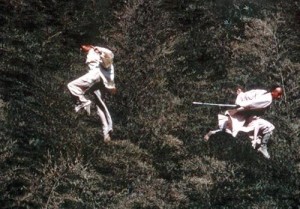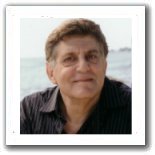By John Ramsey Miller
We need our fans and readers because they buy our books and not just because without their purchases we’d be negatively impacted financially. A lot of authors say they only owe their readers the best book they can write and nothing else. To a lot of authors, a book sale is merely an arm’s length business transaction. Other authors go out of their way to get close to their fans, surrounding themselves with their readers at every opportunity. I know some authors who see their fan clubs as being their immediate family. And some authors will go out of their way to avoid having their fans be able to get in touch with them.
I appreciate my readers and the fans of my books. Fans are readers who read every book I write. I’d love to have a few million fans who couldn’t live without my next book. The majority of the e-mails I get from readers say they enjoyed one of my books, or are asking when a new book is coming out. I can and do answer every e-mail I get. I guess a lot of authors are afraid they’ll get so many e-mails they can’t address them all without spending hours doing so, that they make themselves very difficult to get in touch with.
See, I think being reasonably accessible to readers and fans is good for one’s career. I don’t see my readers as nuisances, instead as individuals worthy of my attention.
Web sites are sales tools, and they should promote authors, but the best ones do more than that. I think a writer’s web site should have a way for readers to contact the author. Not having that feature seems arrogant to me. I think some authors see being hard to get in touch with creates a mystique, but I don’t think it does. I always smile at the way some authors listed in the “members registries” of professional organizations have their agents phone number as the way to contact them, which I think is a waste of an agent’s time. I guess if you are making your agent enough money they might be happy to become your answering service. My agent would not be at all amused.
Every very, very, busy author I know has a private e-mail address and a business e-mail address. I have four e-mail addresses. One I’ve had for fifteen years and is my “private” box. I have one connected to my web site, which goes directly into my private site. I have another one for my corporation, Burning Rabbit, LLC., and I have a G-mail one for getting into this blog site. I check e-mails when I’m at the computer. I give anybody reading this blog permission to drop me an e-mail any time they like. It may take time to respond, if I’m busy, but I will reply.
I have a busy life aside from writing, and a wonderful family and good friends, dogs and chickens all of which require time. But I want my readers to be able to at least send me messages, to ask me questions related to my books or about writing in general.
Although I might not “owe” a reader anything beyond my book, I think communicating with the people who invest time and money in my stories, and go to the trouble to write me a note is the least I can do. Just don’t come to my house without e-mailing ahead, or better yet, calling. I’m in the book.















